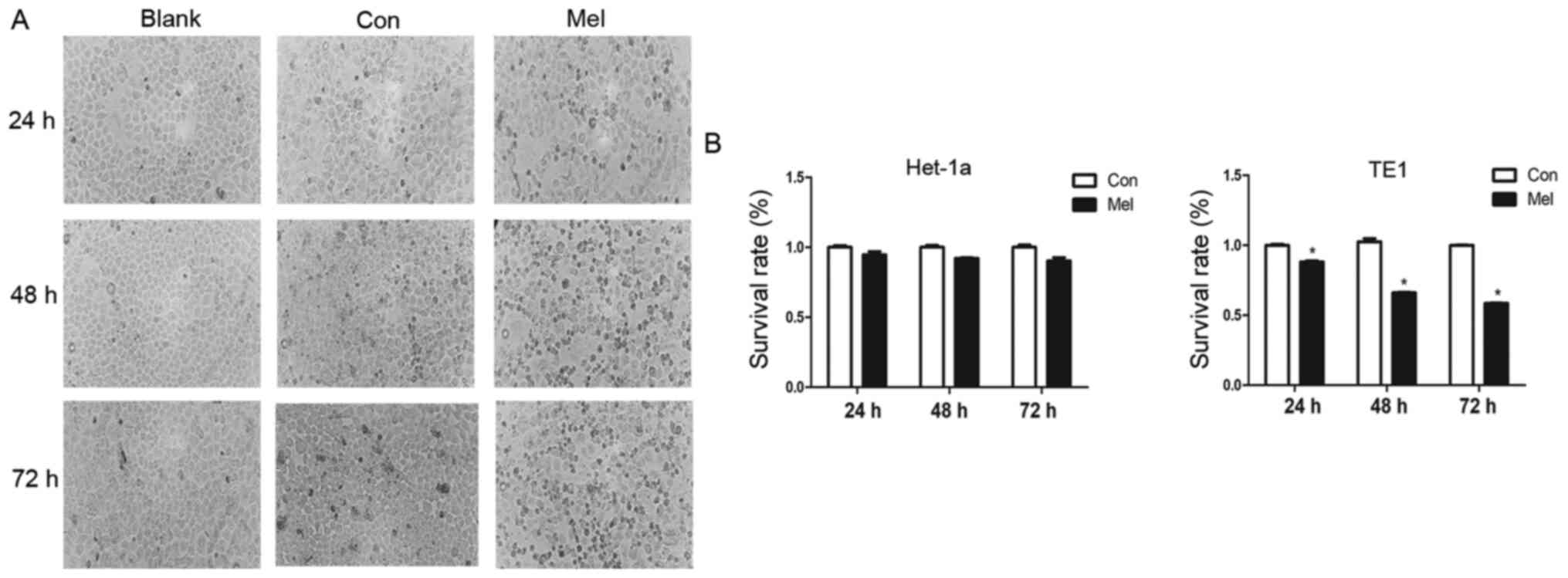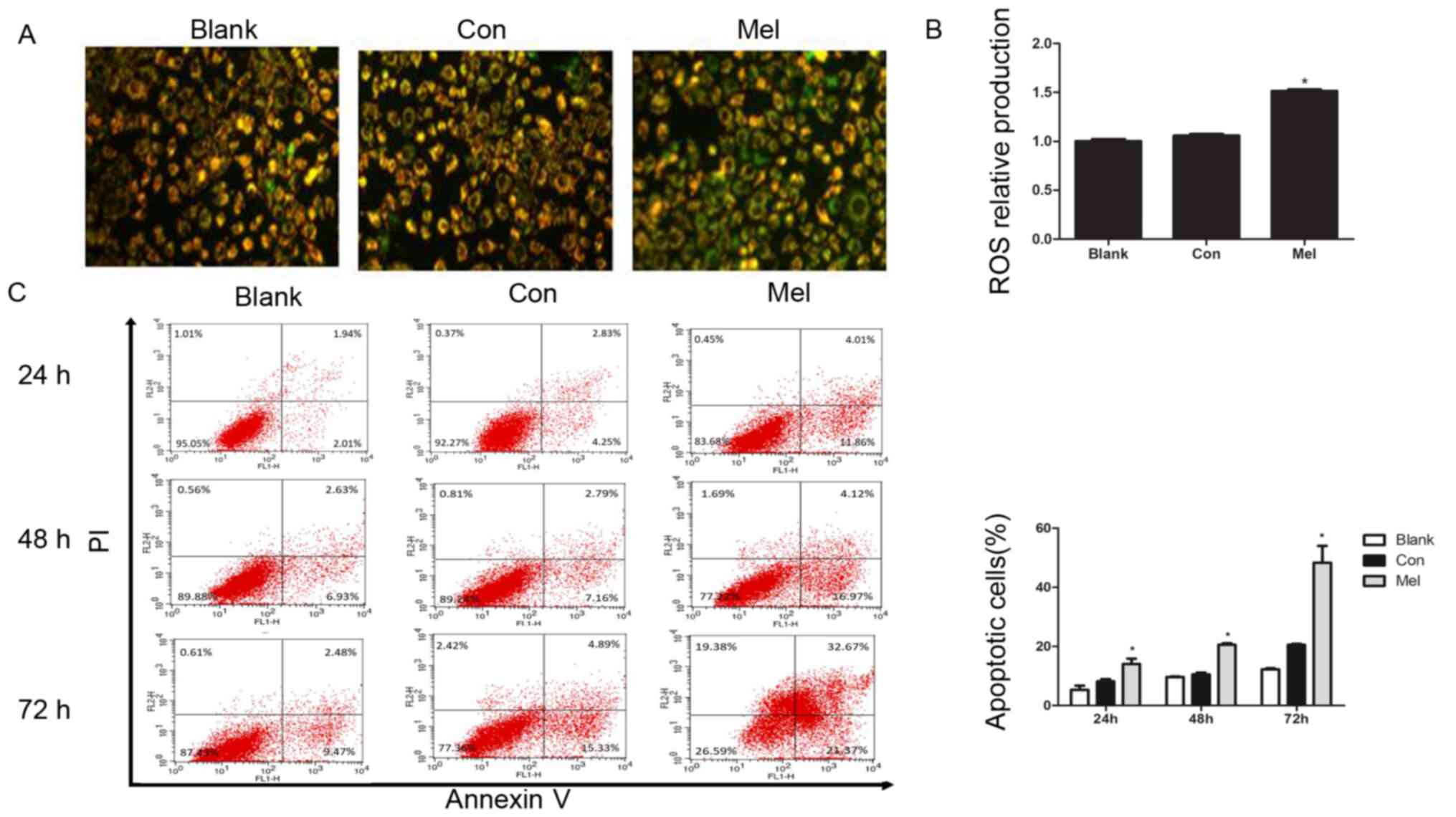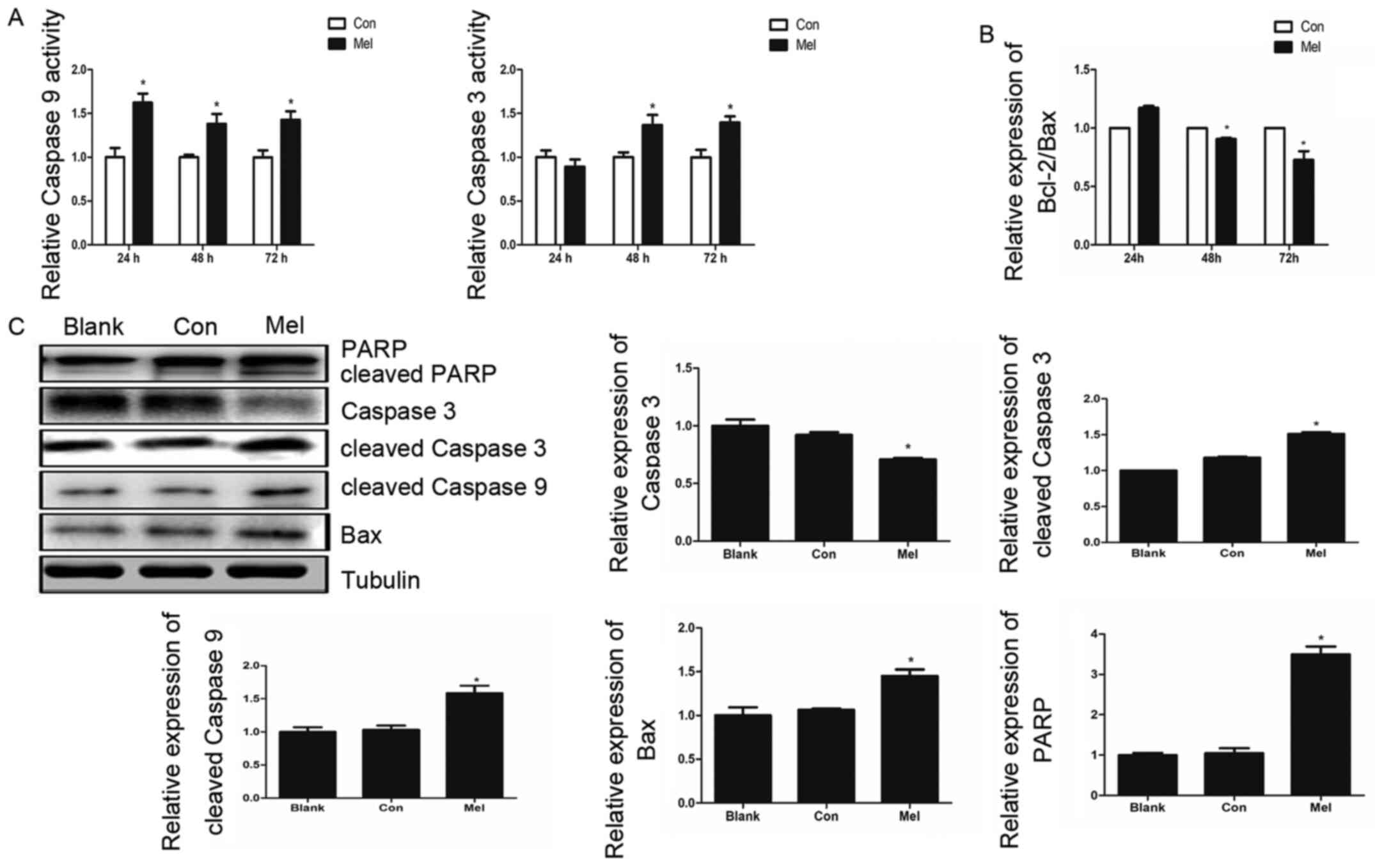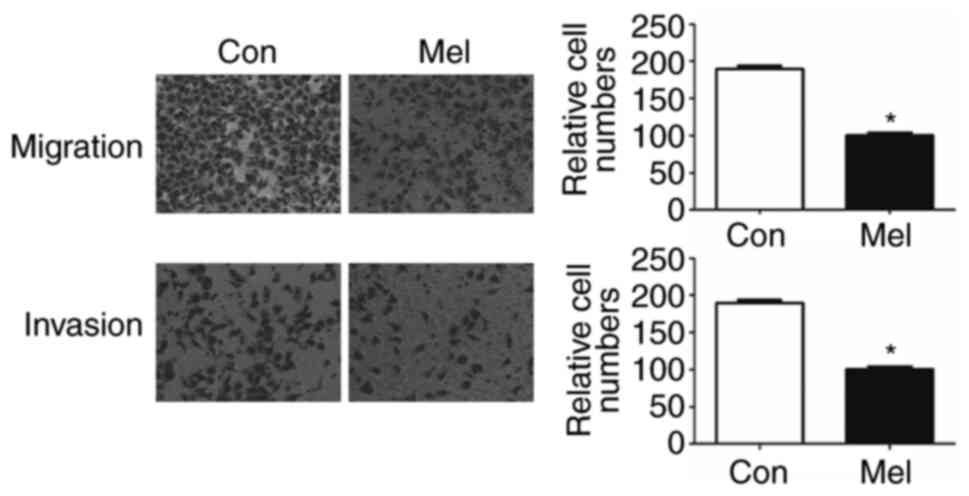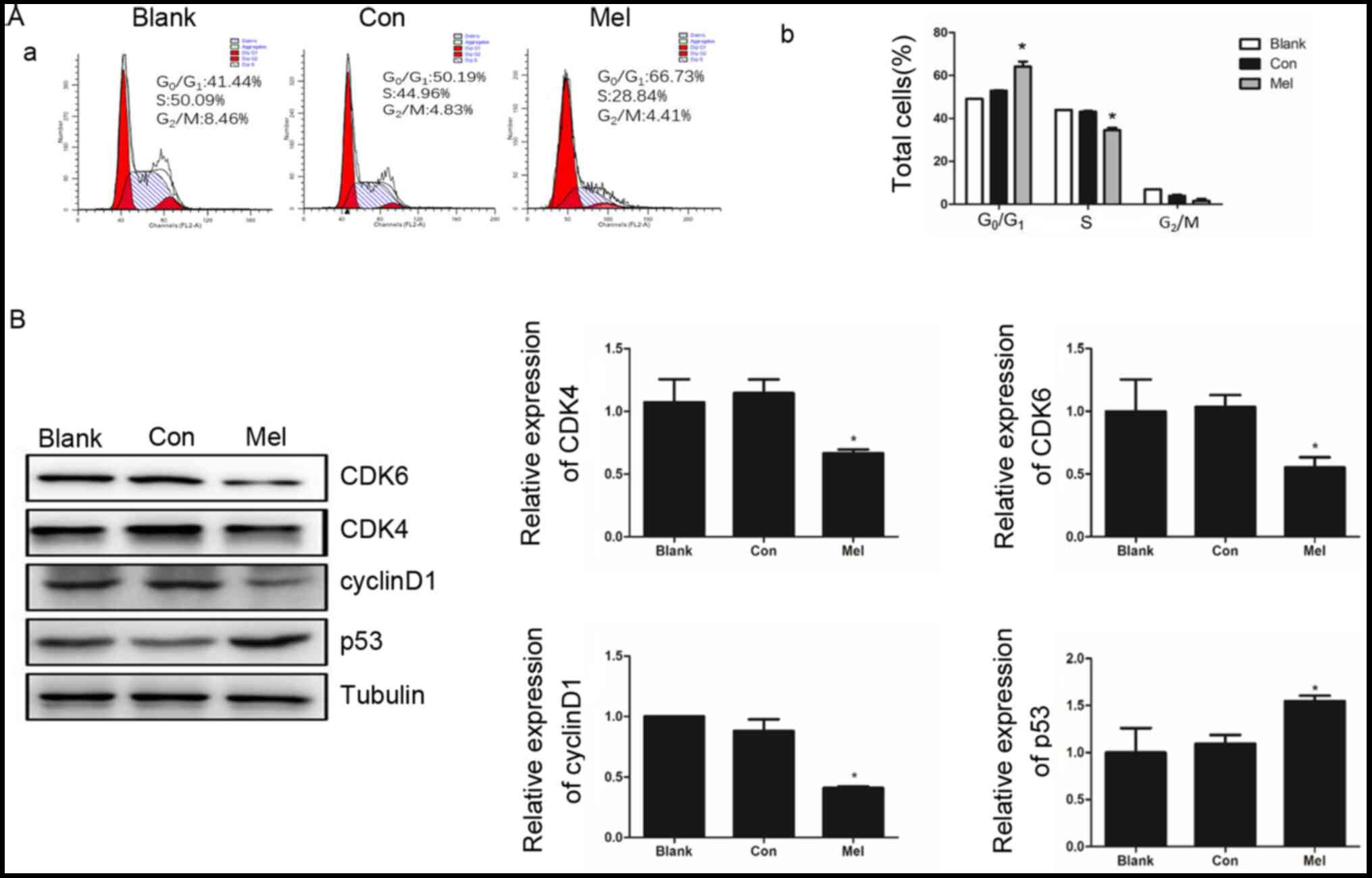|
1
|
Pakzad R, Mohammadian-Hafshejani A,
Khosravi B, Soltani S, Pakzed I, Mohammadian M, Salehiniya H and
Momenimovahed Z: The incidence and mortality of esophageal cancer
and their relationship to development in Asia. Ann Transl Med.
4:292016.PubMed/NCBI
|
|
2
|
Torre LA, Bray F, Siegel RL, Ferlay J,
Lortet-Tieulent J and Jemal A: Global cancer statistics, 2012. CA
Cancer J Clin. 65:87–108. 2015. View Article : Google Scholar : PubMed/NCBI
|
|
3
|
Abnet CC, Arnold M and Wei WQ:
Epidemiology of esophageal squamous cell carcinoma.
Gastroenterology. 154:360–373. 2018. View Article : Google Scholar : PubMed/NCBI
|
|
4
|
Liu X, Zhang M, Ying S, Zhang C, Lin R,
Zheng J, Zhang G, Tian D, Guo Y, Du C, et al: Genetic alterations
in esophageal tissues from squamous dysplasia to carcinoma.
Gastroenterology. 153:166–177. 2017. View Article : Google Scholar : PubMed/NCBI
|
|
5
|
Testa U, Castelli G and Pelosi E:
Esophageal cancer: Genomic and molecular characterization, stem
cell compartment and clonal evolution. Medicines (Basel). 4:672017.
View Article : Google Scholar
|
|
6
|
Chen M, Shen M, Lin Y, Liu P, Liu X, Li X,
Li A, Yang R, Ni W, Zhou X, et al: Adjuvant chemotherapy does not
benefit patients with esophageal squamous cell carcinoma treated
with definitive chemoradiotherapy. Radiat Oncol. 13:1502018.
View Article : Google Scholar : PubMed/NCBI
|
|
7
|
Wu SX, Wang LH, Luo HL, Xie CY, Zhang XB,
Hu W, Zheng AP, Li DJ, Zhang HY, Xie CH, et al: Randomised phase
III trial of concurrent chemoradiotherapy with extended nodal
irradiation and erlotinib in patients with inoperable oesophageal
squamous cell cancer. Eur J Cancer. 93:99–107. 2018. View Article : Google Scholar : PubMed/NCBI
|
|
8
|
Amer MH: Gene therapy for cancer: Present
status and future perspective. Mol Cell Ther. 2:272014. View Article : Google Scholar : PubMed/NCBI
|
|
9
|
Li J, Liang H, Liu J and Wang Z: Poly
(amidoamine) (PAMAM) dendrimer mediated delivery of drug and
pDNA/siRNA for cancer therapy. Int J Pharm. 546:215–225. 2018.
View Article : Google Scholar : PubMed/NCBI
|
|
10
|
Kim HJ, Kim A, Miyata K and Kataoka K:
Recent progress in development of siRNA delivery vehicles for
cancer therapy. Adv Drug Deliv Rev. 104:61–77. 2016. View Article : Google Scholar : PubMed/NCBI
|
|
11
|
Zhou Z, Liu X, Zhu D, Wang Y, Zhang Z,
Zhou X, Qiu N, Chen X and Shen Y: Nonviral cancer gene therapy:
Delivery cascade and vector nanoproperty integration. Adv Drug
Deliv Rev. 115:115–154. 2017. View Article : Google Scholar : PubMed/NCBI
|
|
12
|
Orsolic N: Bee venom in cancer therapy.
Cancer Metastasis Rev. 31:173–194. 2012. View Article : Google Scholar : PubMed/NCBI
|
|
13
|
Rajasekaran G, Dinesh Kumar S, Nam J, Jeon
D, Kim Y, Lee CW, Park IS and Shin SY: Antimicrobial and
anti-inflammatory activities of chemokine CXCL14-derived
antimicrobial peptide and its analogs. Biochim Biophys Acta
Biomembr. 1861:256–267. 2019. View Article : Google Scholar : PubMed/NCBI
|
|
14
|
Sobral F, Sampaio A, Falcão S, Queiroz MJ,
Calhelha RC, Vilas-Boas M and Ferreira IC: Chemical
characterization, antioxidant, anti-inflammatory and cytotoxic
properties of bee venom collected in Northeast Portugal. Food Chem
Toxicol. 94:172–177. 2016. View Article : Google Scholar : PubMed/NCBI
|
|
15
|
Lim HN, Baek SB and Jung HJ: Bee venom and
its peptide component melittin suppress growth and migration of
melanoma cells via inhibition of PI3K/AKT/mTOR and MAPK Pathways.
Molecules. 24:9292019. View Article : Google Scholar
|
|
16
|
Rady I, Siddiqui IA, Rady M and Mukhtar H:
Melittin, a major peptide component of bee venom, and its
conjugates in cancer therapy. Cancer Lett. 402:16–31. 2017.
View Article : Google Scholar : PubMed/NCBI
|
|
17
|
Gajski G and Garaj-Vrhovac V: Melittin: A
lytic peptide with anticancer properties. Environ Toxicol
Pharmacol. 36:697–705. 2013. View Article : Google Scholar : PubMed/NCBI
|
|
18
|
Leao R, Apolonio JD, Lee D, Figueiredo A,
Tabori U and Castelo-Branco P: Mechanisms of human telomerase
reverse transcriptase (hTERT) regulation: Clinical impacts in
cancer. J Biomed Sci. 25:222018. View Article : Google Scholar : PubMed/NCBI
|
|
19
|
Ly JD, Grubb DR and Lawen A: The
mitochondrial membrane potential (deltapsi(m)) in apoptosis; an
update. Apoptosis. 8:115–128. 2003. View Article : Google Scholar : PubMed/NCBI
|
|
20
|
Perelman A, Wachtel C, Cohen M, Haupt S,
Shapiro H and Tzur A: JC-1: Alternative excitation wavelengths
facilitate mitochondrial membrane potential cytometry. Cell Death
Dis. 3:e4302012. View Article : Google Scholar : PubMed/NCBI
|
|
21
|
Rao XY, Huang XL, Zhou XC and Lin X: An
improvement of the 2ˆ(-delta delta CT) method for quantitative
real-time polymerase chain reaction data analysis. Biostat
Bioinforma Biomath. 3:71–85. 2013.PubMed/NCBI
|
|
22
|
Yang Y, Karakhanova S, Hartwig W, D'Haese
JG, Philippov PP, Werner J and Bazhin AV: Mitochondria and
mitochondrial ros in cancer: Novel targets for anticancer therapy.
J Cell Physiol. 231:2570–2581. 2016. View Article : Google Scholar : PubMed/NCBI
|
|
23
|
Song SB, Jang SY, Kang HT, Wei B, Jeoun
UW, Yoon GS and Hwang ES: Modulation of mitochondrial membrane
potential and ROS generation by nicotinamide in a manner
independent of SIRT1 and mitophagy. Mol Cells. 40:503–514.
2017.PubMed/NCBI
|
|
24
|
Lin M, Tang S, Zhang C, Chen H, Huang W,
Liu Y and Zhang J: Euphorbia factor L2 induces apoptosis in A549
cells through the mitochondrial pathway. Acta Pharm Sin B. 7:59–64.
2017. View Article : Google Scholar : PubMed/NCBI
|
|
25
|
Wu R, Tang S, Wang M, Xu X, Yao C and Wang
S: MicroRNA-497 induces apoptosis and suppresses proliferation via
the Bcl-2/Bax-Caspase9-Caspase3 Pathway and Cyclin D2 Protein in
HUVECs. PLoS One. 11:e01670522016. View Article : Google Scholar : PubMed/NCBI
|
|
26
|
Luch A: Cell cycle control and cell
division: Implications for chemically induced carcinogenesis.
Chembiochem. 3:506–516. 2002. View Article : Google Scholar : PubMed/NCBI
|
|
27
|
Otto T and Sicinski P: Cell cycle proteins
as promising targets in cancer therapy. Nature reviews. Cancer.
17:93–115. 2017.PubMed/NCBI
|
|
28
|
Sherr CJ, Beach D and Shapiro GI:
Targeting CDK4 and CDK6: From discovery to therapy. Cancer Discov.
6:353–367. 2016. View Article : Google Scholar : PubMed/NCBI
|
|
29
|
Chen J: The cell-cycle arrest and
apoptotic functions of p53 in tumor initiation and progression.
Cold Spring Harb Perspect Med. 6:a0261042016. View Article : Google Scholar : PubMed/NCBI
|
|
30
|
Lee G and Bae H: Anti-inflammatory
applications of melittin, a major component of bee venom: Detailed
mechanism of action and adverse effects. Molecules. 21:6162016.
View Article : Google Scholar
|
|
31
|
Kong GM, Tao WH, Diao YL, Fang PH, Wang
JJ, Bo P and Qian F: Melittin induces human gastric cancer cell
apoptosis via activation of mitochondrial pathway. World J
Gastroenterol. 22:3186–3195. 2016. View Article : Google Scholar : PubMed/NCBI
|
|
32
|
Soliman C, Eastwood S, Truong VK, Ramsland
PA and Elbourne A: The membrane effects of melittin on gastric and
colorectal cancer. PLoS One. 14:e02240282019. View Article : Google Scholar : PubMed/NCBI
|
|
33
|
Chen W, Zheng R, Baade PD, Zhang S, Zeng
H, Bray F, Jemal A, Yu XQ and He J: Cancer statistics in China,
2015. CA Cancer J Clin. 66:115–132. 2016. View Article : Google Scholar : PubMed/NCBI
|
|
34
|
Guo LD, Chen XJ, Hu YH, Yu ZJ, Wang D and
Liu JZ: Curcumin inhibits proliferation and induces apoptosis of
human colorectal cancer cells by activating the mitochondria
apoptotic pathway. Phytother Res. 27:422–430. 2013. View Article : Google Scholar : PubMed/NCBI
|
|
35
|
Bishayee K, Ghosh S, Mukherjee A,
Sadhukhan R, Mondal J and Khuda-Bukhsh AR: Quercetin induces
cytochrome-c release and ROS accumulation to promote apoptosis and
arrest the cell cycle in G2/M, in cervical carcinoma:
Signal cascade and drug-DNA interaction. Cell Prolif. 46:153–163.
2013. View Article : Google Scholar : PubMed/NCBI
|
|
36
|
Hu Q, Wu D, Chen W, Yan Z, Yan C, He T,
Liang Q and Shi Y: Molecular determinants of caspase-9 activation
by the Apaf-1 apoptosome. Proc Natl Acad Sci USA. 111:16254–16261.
2014. View Article : Google Scholar : PubMed/NCBI
|
|
37
|
Bai P: Biology of poly(ADP-Ribose)
polymerases: The factotums of cell maintenance. Mol Cell.
58:947–958. 2015. View Article : Google Scholar : PubMed/NCBI
|
|
38
|
Los M, Mozoluk M, Ferrari D, Stepczynska
A, Stroh C, Renz A, Herceg Z, Wang ZQ and Schulze-Osthoff K:
Activation and caspase-mediated inhibition of PARP: A molecular
switch between fibroblast necrosis and apoptosis in death receptor
signaling. Mol Biol Cell. 13:978–988. 2002. View Article : Google Scholar : PubMed/NCBI
|
|
39
|
Jiang Y, Zhang J, Zhao J, Li Z, Chen H,
Qiao Y, Chen X, Liu K and Dong Z: TOPK promotes metastasis of
esophageal squamous cell carcinoma by activating the
Src/GSK3β/STAT3 signaling pathway via γ-catenin. BMC Cancer.
19:12642019. View Article : Google Scholar : PubMed/NCBI
|
|
40
|
Giono LE and Manfredi JJ: The p53 tumor
suppressor participates in multiple cell cycle checkpoints. J Cell
Physiol. 209:13–20. 2006. View Article : Google Scholar : PubMed/NCBI
|
|
41
|
McCurrach ME, Connor TM, Knudson CM,
Korsmeyer SJ and Lowe SW: Bax-deficiency promotes drug resistance
and oncogenic transformation by attenuating p53-dependent
apoptosis. Proc Natl Acad Sci USA. 94:2345–2349. 1997. View Article : Google Scholar : PubMed/NCBI
|
















